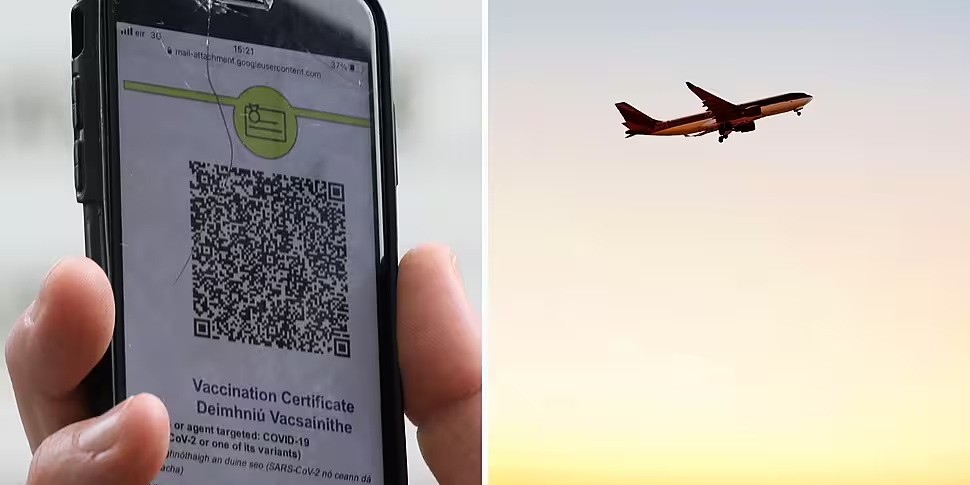Europe’s new COVID Cert rules kick in from next week – but most Irish people won’t be affected until after St Patrick’s Day, according to travel expert Eoghan Corry.
From February 1st, the EU Digital COVID Cert will only be valid for travel from nine months after your second vaccine dose.
The expiry date had already been introduced by some countries; however, the rules are now being standardised across the EU.
Most countries are also removing the COVID testing requirement for anyone travelling with a valid cert.
On Newstalk Breakfast this morning, Travel Extra Editor Eoghan Corry explained what the changes mean.
“The big change on February 1st is that there is a best-by date on your second vaccination introduced at European level,” he said.
“It had already been introduced by individual countries. Czech Republic, Austria people like that started saying nine months after your second vaccination, we are going to look for the third one – what most people call the booster.
“They are going to start looking for that at the border on February 1st. It doesn’t mean you have to have your third vaccination on February 1st, it just means keep an eye on that nine-month date – most Irish people got vaccinated in July so it will be kicking in after St Patrick’s Day.”
Testing
He said there are a few “very important exceptions” when it comes to countries removing the testing requirements introduced before Christmas.
“Portugal is an exception, Greece is an exception and Italy is an exception,” he said.
“There are very big differences as well between them. Portugal requires tests over the age of 12 - that is your 12th birthday not your 13th - but Greece and Italy both require tests over the age of six.
“Everyone is accepting antigen. There is a difference between countries in that some accept them within 48 hours and others accept them for 24.
“The rest of the 27 – ourselves included – have dropped testing but remember that is within the EU. If you are flying in from outside the EU, restrictions apply.”
Cert
Mr Corry said many countries also require people to show proof of vaccination for a range of services, including hospitality – with some having different rules for different regions.
“Also, when you arrive in the country: locator form, locator form, locator form,” he said. “Every country requires a locator form.
“Before COVID, we travelled with a boarding pass and passport. You now need a boarding pass, a passport, your Digital Cert and a locator form. Basically, four documents will get you anywhere within Europe and this is travel within Europe I would stress.”
You can check the EU website for details of the travel restrictions in place in each country.









